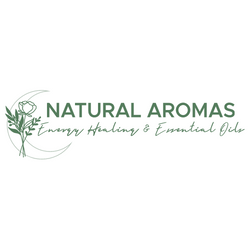FAQs

What is Reiki healing?
Reiki healing is a form of alternative medicine that uses energy healing to promote physical, mental, and emotional well-being.
How does Reiki healing work?
Reiki practitioners channel healing energy into the body through the hands, which can help to balance the body's energy and promote healing.
What are the benefits of Reiki healing?
Reiki healing is believed to have a range of benefits, including reducing stress and anxiety, improving sleep, reducing pain, and promoting a sense of calmness and well-being.
How is a Reiki healing session conducted?
A Reiki healing session typically involves the practitioner placing their hands on or near the body, in various positions that correspond to the chakras.
How long does a Reiki healing session last?
A Reiki healing session typically lasts between 60 and 90 minutes.
Is Reiki healing safe?
Reiki healing is considered to be a safe form of alternative medicine, with no known serious side effects.
How often should someone receive Reiki healing?
The frequency of Reiki healing sessions can vary depending on the individual and their needs. Some people may receive Reiki healing on a weekly basis, while others may receive it less frequently.
Can Reiki healing be used in conjunction with other forms of medicine?
Yes, Reiki healing can be used alongside other forms of medicine and treatments.
Are there any side effects to receiving Reiki treatments?
Reiki is considered to be a safe form of alternative medicine with no known serious side effects and can be performed as many times as needed (you can't overdo Reiki). Some people may experience temporary side effects such as feeling tired or emotional after a treatment, but these are generally considered to be a normal part of the healing process and the body's way of releasing certain energies. It's important to note that if you are currently undergoing any medical treatment, it's always best to consult with your doctor before receiving a Reiki treatment.

What are essential oils?
Essential oils are highly concentrated plant extracts that are used for their therapeutic and aromatic properties.
How are essential oils used?
Essential oils can be used in a variety of ways, including aromatherapy, massage, and topical application.
What are the benefits of using essential oils?
Essential oils are believed to have a range of benefits, including reducing stress and anxiety, improving sleep, reducing pain, and promoting a sense of well-being.
Are essential oils safe to use?
Essential oils are considered safe when used properly and in moderation. However, it's important to use high-quality, pure essential oils and to follow the recommended dosage and usage guidelines.
How should essential oils be stored?
Essential oils should be stored in a cool, dark place, away from direct sunlight and heat, to preserve their potency and shelf life.
Can essential oils be applied topically?
Yes, essential oils can be applied topically, but it's important to dilute them with a carrier oil such as coconut oil, jojoba oil or sweet almond oil before applying to the skin.
Can essential oils be ingested?
Essential oils should not be ingested unless under the guidance of a healthcare practitioner or a qualified aromatherapist, Some essential oils can be harmful if ingested in large doses or for a prolonged period of time.
What are the most common essential oils used?
The most common essential oils used are lavender, peppermint, tea tree, eucalyptus, lemon, and rosemary.
Can essential oils be used during pregnancy?
It is recommended to consult with a healthcare practitioner or a qualified aromatherapist before using essential oils during pregnancy, as some oils may not be safe for use during this time.
